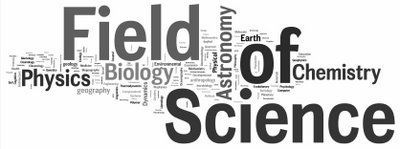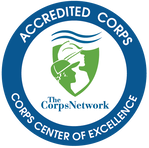|
In a previous blog entry we outlined a process to determine which of the four STEM branches you're most attracted to. Those interested in the sciences will find themselves in the largest of STEM categories, with a seemingly countless number of college majors (and minors!) to choose from. Science encompasses a range of careers broad enough to include volcanologists who risk their lives near molten lava to quantum computer scientists who spend their days looking for ways to maximize data storage. With such an incredible range of opportunities within the scientific realm, it's critical to take advantage of those first two years of general college coursework to fine tune the process of choosing a major. Working as an intern in your field of interest can confirm your passion (while giving you invaluable work experience) or redirect you towards a more suitable career goal. The Goliath of STEM - the Science Realm While each of the STEM branches is broad in scope compared to some other career avenues, the scientific realm of STEM dwarfs the other three. Scientists descend to the bottom of the ocean in search of mysterious forms of life, study distant galaxies, explore and expand the limits of technology and do virtually everything in between. Broadly speaking (and with the disclaimer that plenty of overlap exists within these fields), non-healthcare related science consists of the following disciplines:
General Coursework and Internships - Tools to Refine Your Major Students who plan on majoring in any branch of science will be required to take general courses in biology, chemistry, and physics; many schools also require a computer science related course. Gratefully, these courses provide an introduction to all major fields within the general realm of science, save for earth science. General coursework exposes students to a wide range of career options, yet the marginalization of the earth sciences in some schools is of concern due to the wide range of job opportunities this field encompasses. Anyone who suspects their passion may lie in the realm of earth science would be well advised to take at least a basic geology course. Such coursework will readily transfer for University credit, in spite of its absence on the AGEC-S list of required courses. Utilizing your summer months as an intern in whatever scientific field you are most attracted to will provide invaluable feedback about your projected career path. Some internship opportunities, including those offered through G.E.M Environmental, provide living stipends and can be completed as early as one year into your college career. Keep following our blog for more great tips on how to narrow down which STEM major is best for you. Next month, we'll explore the "T" in STEM and highlight the career options available to people with an interest in working as technicians.
|
Categories
All
Archives
June 2024
|
G.E.M. Environmental NFP
Geology - Engineering - Minerals - Environmental - Not for Profit
Geology - Engineering - Minerals - Environmental - Not for Profit
Community Partners
|
Programs
|
Get Involved
|
About
|
Follow Us
|
Sponsors & Donors
|
© COPYRIGHT 2017 - 2023. ALL RIGHTS RESERVED. G.E.M. Environmental NFP
GEM Environmental, GEM4STEM, GEM Corps, and Charity Rocks are all Registered Trademarks of G.E.M. Environmental NFP.
Any and all use of Trademarks or Copyrights must be authorized.
GEM Environmental, GEM4STEM, GEM Corps, and Charity Rocks are all Registered Trademarks of G.E.M. Environmental NFP.
Any and all use of Trademarks or Copyrights must be authorized.

 RSS Feed
RSS Feed


